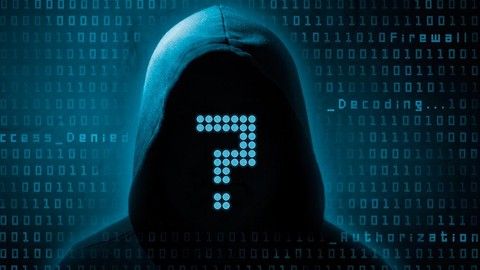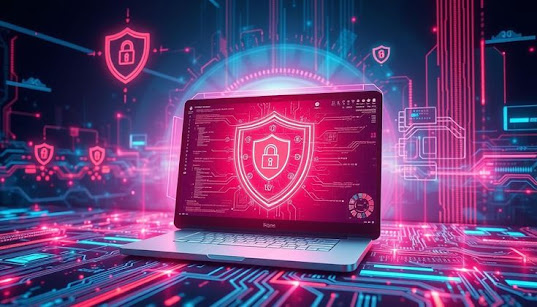AI-Powered Password Cracking: Why You Need to Rethink Your Login Security 2025
Quantum Computing vs. Encryption: Are We Ready for the Future?
Introduction
In the age of rapid technological advancement, quantum computing stands as a monumental leap forward. But with that progress comes a question that has the cybersecurity world on edge: Are we ready for the impact it could have on encryption? Encryption underpins almost all of our digital privacy and security—from banking transactions to confidential business communications. With quantum computers becoming more capable, the algorithms that keep our data safe today might not be secure tomorrow.
A. Understanding Encryption Today
To understand the threat, we first need to understand how encryption works today. Encryption is the process of converting information into a coded format that can only be decoded by someone with the right key. The two most common types are:
- Symmetric Encryption: The same key is used for both encryption and decryption (e.g., AES).
- Asymmetric Encryption: Uses a public key for encryption and a private key for decryption (e.g., RSA, ECC).
These methods rely heavily on mathematical problems that are extremely hard to solve with classical computers—like factoring large prime numbers or solving discrete logarithms.
B. What is Quantum Computing?
Quantum computing is a new kind of computation that leverages the principles of quantum mechanics—like superposition and entanglement—to process data. Unlike classical bits (which are either 0 or 1), quantum bits (qubits) can be both at the same time. This allows quantum computers to perform certain calculations at speeds unimaginable by today’s standards.
For example, Google’s quantum computer reportedly solved a problem in 200 seconds that would take a supercomputer 10,000 years.
C. Why Quantum Computing Threatens Current Encryption
Encryption depends on hard mathematical problems—but what’s hard for classical computers can be easy for quantum ones. Quantum algorithms like Shor’s Algorithm can factor large numbers exponentially faster than classical methods. This is a game-changer, especially for asymmetric encryption:
- RSA and ECC: Vulnerable to Shor’s Algorithm.
- Symmetric Algorithms: Still relatively secure, but require longer key lengths (e.g., AES-256 instead of AES-128).
As quantum capabilities grow, traditional encryption methods may become obsolete.
D. Post-Quantum Cryptography: A New Hope
The cybersecurity world isn’t standing still. Researchers and organizations like NIST (National Institute of Standards and Technology) have been working on Post-Quantum Cryptography (PQC)—algorithms designed to resist quantum attacks.
These new algorithms aim to provide the same level of security as current methods but using problems that even quantum computers struggle with. Some promising PQC candidates include:
- CRYSTALS-Kyber (for encryption)
- CRYSTALS-DILITHIUM (for digital signatures)
- NTRU and Falcon
In 2022, NIST began standardizing some of these as the new future-proof encryption techniques.
E. Real-World Implications of Quantum Decryption
If a quantum computer were to break RSA tomorrow, the effects would be immediate and widespread:
- Banking transactions could be decrypted retroactively.
- Emails protected with PGP could be read.
- Government communications and classified data could be exposed.
- VPNs and HTTPS connections could be broken.
This is why many experts refer to it as a “Y2Q” event—Year to Quantum—a digital doomsday if we’re not prepared.
F. Migration Challenges to Post-Quantum Security
While PQC exists, migrating entire infrastructures is not simple. Challenges include:
- Compatibility: Updating software and hardware across billions of devices.
- Performance: Some PQC algorithms are more computationally demanding.
- Standardization: Waiting for finalized global standards slows adoption.
- Cost: Financial investment in upgrading security infrastructure.
Many organizations are still running on outdated encryption. The risk isn’t just quantum—it’s complacency.
G. Hybrid Cryptography: A Transition Strategy
One approach being taken is hybrid cryptography—using both traditional and post-quantum algorithms together. This provides backward compatibility while preparing for future threats.
For instance, Google has tested hybrid key exchange mechanisms in Chrome to evaluate PQC readiness. Similarly, VPN providers are beginning to explore hybrid encryption tunnels.
H. Role of Big Tech and Governments
Major players like Google, Microsoft, and IBM are investing heavily in both quantum computing and quantum-resistant security. Governments are also stepping in:
- U.S. Executive Orders now require federal agencies to prepare for PQC.
- European Union is funding quantum-safe encryption research.
- China is heavily advancing in quantum network capabilities.
This isn’t just a tech issue—it’s a matter of national security.
I. What Individuals and Businesses Can Do Now
While the full threat of quantum decryption may be a few years away, proactive steps can be taken today:
- Use strong encryption protocols (e.g., TLS 1.3, AES-256).
- Stay informed on PQC developments and vendor updates.
- Ask service providers about their quantum readiness.
- Back up data and prepare for future migrations.
Cybersecurity isn’t a one-time fix—it’s a continuous journey.
J. Conclusion: Are We Ready for the Future?
Quantum computing is no longer science fiction—it’s becoming a reality. And while its potential to revolutionize fields like medicine and materials science is exciting, its impact on cybersecurity cannot be ignored.
Encryption as we know it may not be safe forever, but with the right research, investments, and awareness, we can build a future that’s not only quantum-powered—but also quantum-safe. The transition won't be instant, but the time to prepare is now.





Comments
Post a Comment